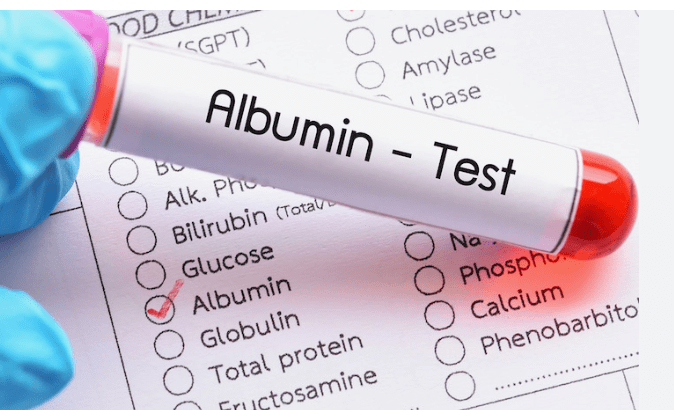Introduction
What exactly is albumīns? This vital protein plays a crucial role in various physiological processes, yet it often goes unnoticed. In this definitive guide, we’ll explore what albumīns are, their significance in the body, and how they impact your health. Whether you’re looking to boost your understanding of human physiology or simply curious about albumīns, this article provides expert insights into this essential protein.
Table: Key Facts about Albumīns
| Fact | Description |
|---|---|
| Primary Function | Helps maintain osmotic pressure and transports molecules. |
| Source | Mainly produced in the liver. |
| Normal Range | Albumin levels in blood should range between 3.5–5.0 g/dL. |
| Types of Albumins | Two main types: serum albumin and egg albumin. |
What are Albumīns? A Master Protein in the Body
Albumīns are a group of proteins found in the blood, primarily produced in the liver. They are essential for maintaining osmotic pressure, which helps keep the right balance of fluid inside the blood vessels. Albumīns are also responsible for transporting various molecules, including hormones, vitamins, and medications, throughout the body. Without sufficient levels of albumīn, various bodily functions can be compromised.
The Best Known Functions of Albumīns
Albumīns are known for their diverse roles in the body. Below are the most crucial functions:
- Maintaining Osmotic Pressure: The primary role of albumīns is to help retain fluid within the blood vessels. This function is vital because it helps prevent edema, or swelling caused by fluid accumulation in tissues. It also ensures that nutrients, oxygen, and waste products are efficiently transported across the blood vessel walls.
- Transporting Essential Molecules: Albumīns act as carriers for various important substances in the bloodstream, including fatty acids, drugs, and hormones. For example, they help transport the thyroid hormone and bilirubin, which is a waste product of red blood cell breakdown.
- Acid-Base Balance: By binding to hydrogen ions, albumīns also play a role in maintaining the body’s pH balance. This process is crucial in maintaining proper cellular function and overall body homeostasis.
- Antioxidant Activity: Another lesser-known function of albumīns is their antioxidant activity. They bind to free radicals and reactive oxygen species (ROS), helping to protect the body from oxidative stress, which can lead to various chronic diseases.
The Importance of Albumīn Levels in Health
Optimal albumīn levels are critical to good health. If albumīn levels drop too low, it can indicate an underlying health problem, such as liver disease, kidney disease, or malnutrition. Conversely, abnormally high albumīn levels are rare but can suggest dehydration.
Normal Albumīn Levels
In healthy adults, the normal range for albumīn levels in the blood is generally between 3.5 and 5.0 g/dL. Variations outside this range can signal potential health issues. Here’s what to keep in mind:
- Low Albumīn Levels (Hypoalbuminemia): Can indicate liver or kidney dysfunction, malnutrition, or chronic inflammatory conditions.
- High Albumīn Levels (Hyperalbuminemia): Often associated with dehydration or excessive protein intake.
Causes of Low Albumīn Levels
Low albumīn levels can occur due to a variety of conditions, including:
- Liver Diseases: Since albumīn is produced in the liver, liver diseases like cirrhosis can reduce albumīn production.
- Kidney Diseases: Conditions like nephrotic syndrome can lead to the loss of albumīn in urine.
- Malnutrition: Inadequate protein intake can result in lower albumīn levels.
Practical Tips for Maintaining Healthy Albumīn Levels
To keep your albumīn levels within the optimal range, here are some actionable tips:
Eat a Balanced Diet
Ensure that you’re consuming enough high-quality proteins from sources like meat, fish, eggs, and legumes. Proper nutrition is key to maintaining healthy albumīn levels, particularly if you have a high risk of malnutrition.
Hydrate Well
Dehydration can elevate albumīn levels. To maintain balance, make sure you’re drinking enough water throughout the day, especially if you’re physically active or live in a hot climate.
Monitor Liver and Kidney Health
Regular check-ups and monitoring your liver and kidney function can help identify early signs of disease that might affect albumīn production. Early detection can be vital for effective treatment.
Avoid Excessive Alcohol Consumption
Alcohol abuse can severely impact liver function, leading to reduced albumīn production. Moderation is key when it comes to alcohol intake.
Get Regular Exercise
Exercise improves circulation and supports overall metabolic health, which can positively affect your albumīn levels and general well-being.
The Best Ways to Test for Albumīn Levels
If you’re concerned about your albumīn levels, getting a blood test is the best way to determine them. Here are some common tests:
- Serum Albumin Test: This is the most common test used to measure albumīn levels in the blood. It provides information about nutritional status and liver function.
- Urinary Albumin Test: If your healthcare provider suspects kidney issues, a test to check albumīn levels in urine may be recommended.
Conclusion
Albumīns are one of the most important proteins in your body, playing essential roles in maintaining osmotic pressure, transporting nutrients, and supporting various physiological functions. Understanding the role of albumīn in health is crucial for maintaining optimal well-being. By taking steps to ensure proper nutrition, hydration, and monitoring of liver and kidney health, you can support your body’s production of this vital protein.
FAQ Section
What causes low albumīn levels?
Low albumīn levels can result from liver or kidney diseases, malnutrition, or chronic illnesses like inflammation and diabetes.
How is albumīn related to fluid balance in the body?
Albumīn helps maintain osmotic pressure, ensuring that fluids stay within blood vessels and do not leak into surrounding tissues, preventing edema.
What is the normal range for albumīn levels?
The typical range for albumīn in the blood is 3.5–5.0 g/dL. Levels outside this range can indicate underlying health issues.
Can dehydration affect albumīn levels?
Yes, dehydration can cause an increase in albumīn levels, making them appear higher than normal.
Is a blood test required to check albumīn levels?
Yes, a serum albumin test is the most common way to check albumīn levels in your blood.
Can diet influence albumīn production?
Yes, a diet rich in proteins supports albumīn production, helping maintain healthy levels in the body.
What is hypoalbuminemia?
Hypoalbuminemia refers to low albumīn levels in the blood, which can lead to conditions like edema or signify liver and kidney dysfunction.
Can alcohol consumption affect albumīn levels?
Chronic alcohol consumption can damage the liver, leading to reduced albumīn production and other related health problems.
How does albumīn help transport molecules in the body?
Albumīn acts as a carrier protein for substances like fatty acids, hormones, and vitamins, aiding in their transport through the bloodstream.
Can high albumīn levels be harmful?
High albumīn levels are usually a sign of dehydration and may indicate that you’re not consuming enough fluids.





